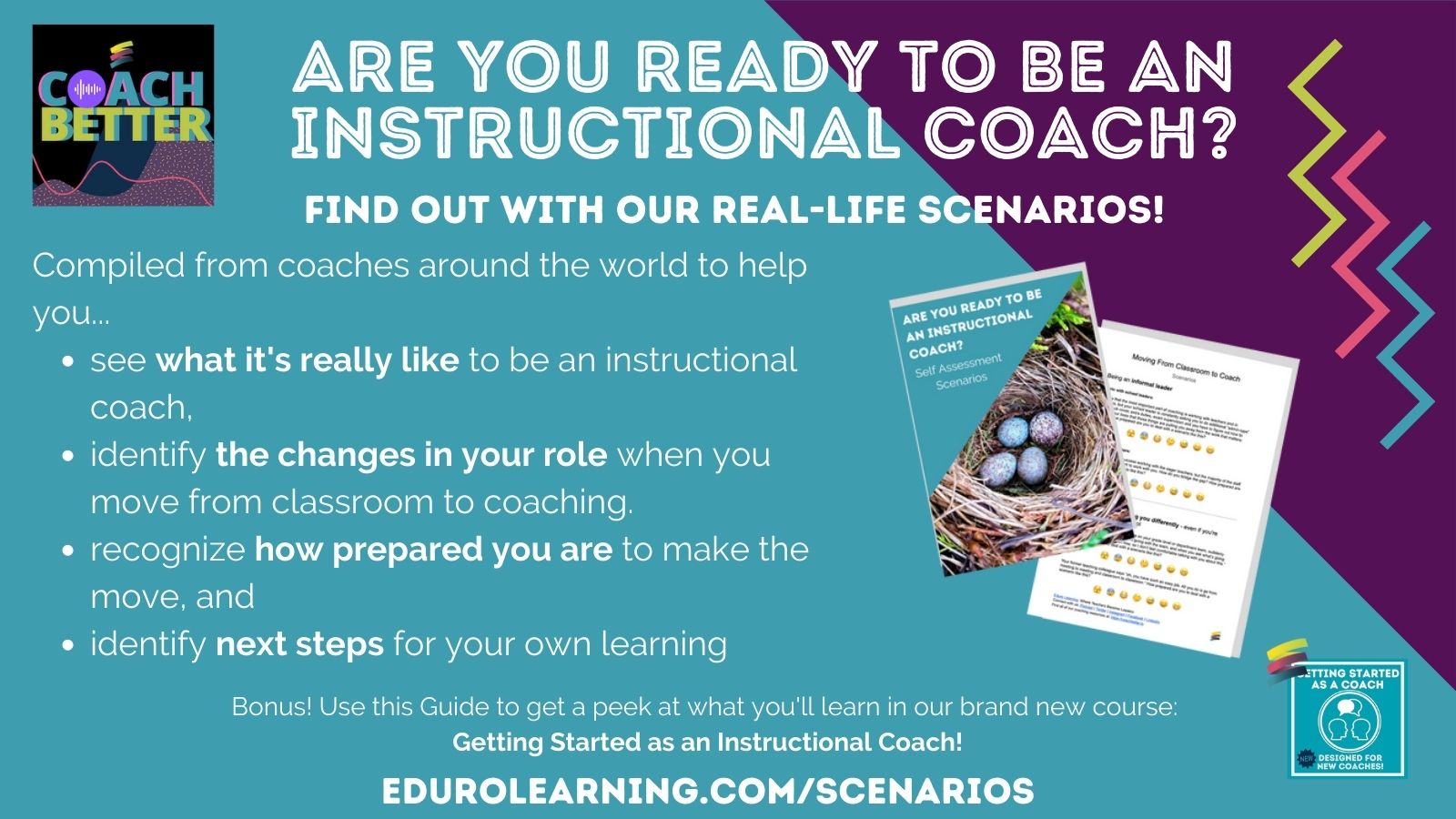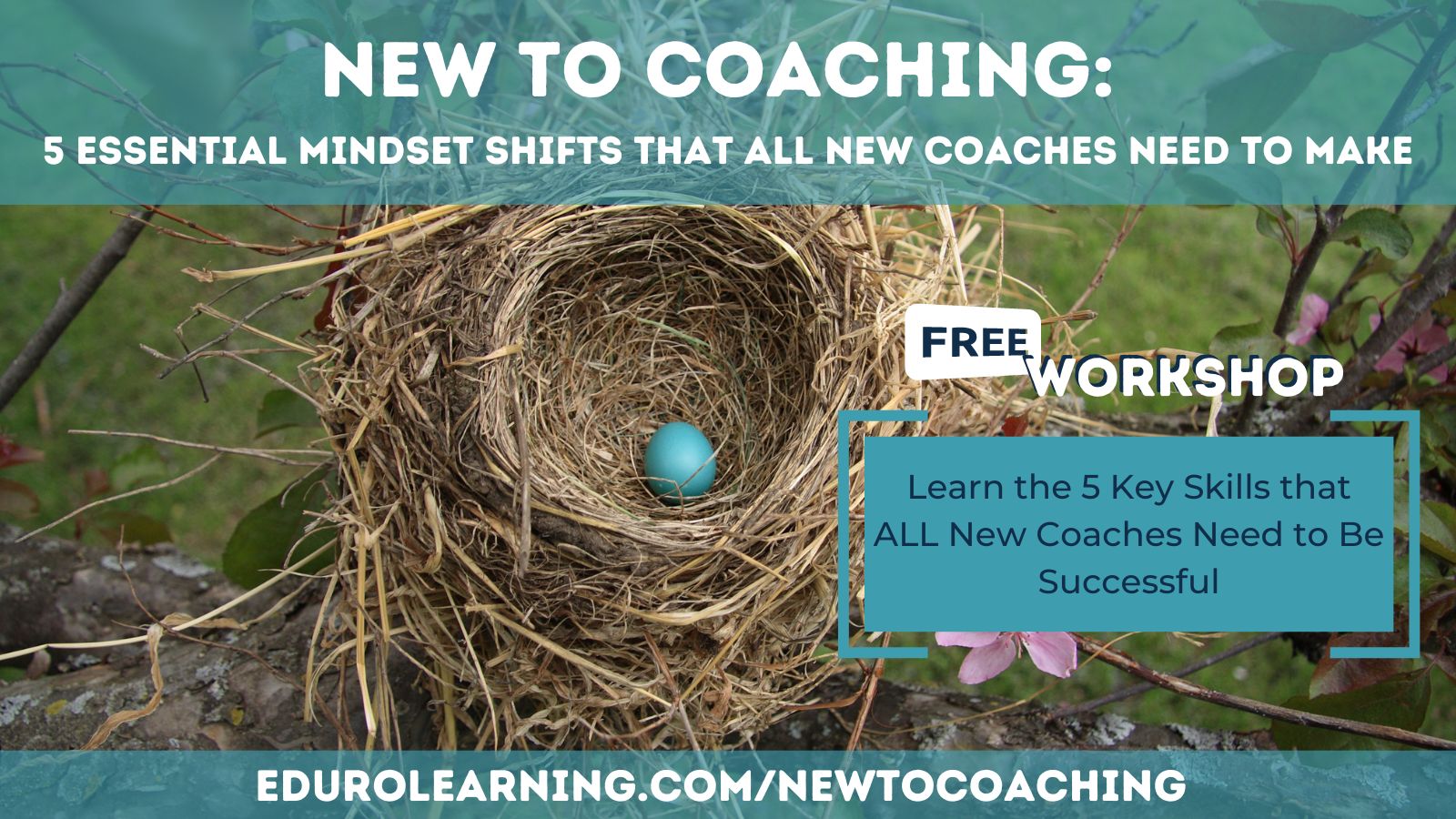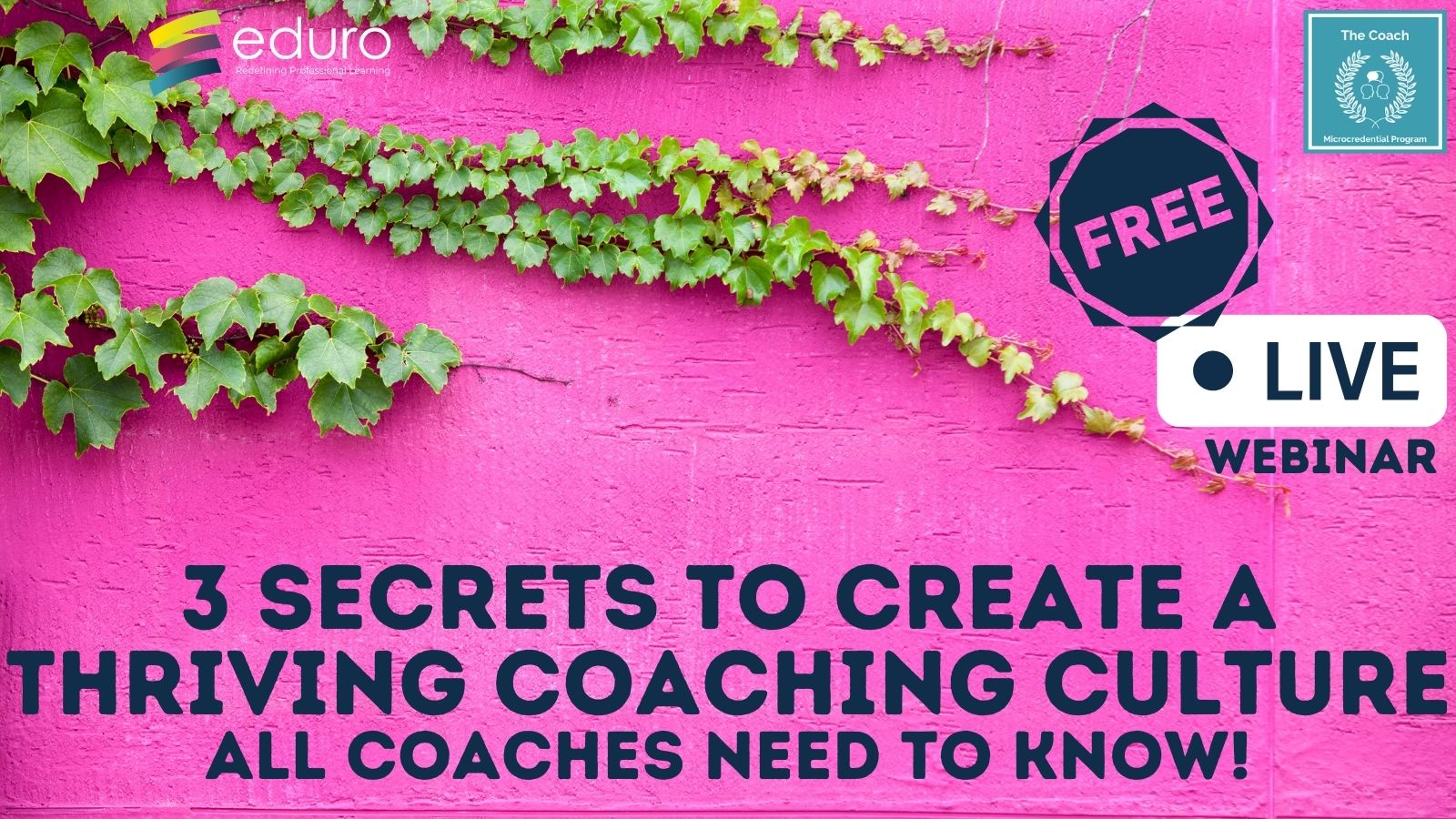In this #coachbetter episode, Clint and Kim chat with Michele Mattoon, Executive Director of the National School Reform Faculty.
Michele is a master facilitator and coach. As Executive Director of NSRF, she works with school leaders, coaches, and educators around the world to help them have better, more intentional, and more meaningful conversations through the use of the Critical Friends Group Protocols & Communities. This conversation clarifies what a protocol is, why they work so well, how to use them effectively, and how to start bringing them into your school culture. If you’re ready to have more intentional conversations – with individuals, teams, divisions, or a whole school, you don’t want to miss this conversation!
Subscribe to #coachbetter via your favorite Podcast Player!
Featured Guest

Bonus! Watch the Spotlight Version on YouTube!
SHOW NOTES
Please tell us about your work & your journey to get to this point in your career (as an introduction to you)
Been in education for 36 years. Started as an ES teacher (1-2 gr), also taught older kids. Became the ES Coordinator, the school was part of the NSRF (National School Reform Faculty) pilot program and got the training very early. As a teacher, I had an epiphany that this is a game changer. Did my first retreat, and then came back to this work, and those two merged into a big aha moment. Around 2008, I became the Director of NSRF
What’s a protocol?
Protocols are structured conversations so that the group that goes through the conversation gets their desired outcomes at the end. The structure acts as guardrails that take you in the conversation from where you start, to where you want to be without getting distracted, in as straight a path as possible.
They force you, in a kind and nice way, to think through something very deliberately. Starts by presenting what you want to do, then there’s a chance to ask clarifying questions, every step of the process is timed, built so that equity of voice is included, then there’s an analysis, pulling apart of the problem. After this process, then we come up with solutions. We come up with solutions while the other person just thinks about what we’ve said. The other person then reflects and thinks about what was helpful, what they might apply. At the end, we debrief, did we get what we want, how do you feel about it. Which lets us know if we were successful.
Not all protocols follow that exact path, but they all have those elements in there. It’s important to pick the right tool for what you want to accomplish.
Distinction between using a protocol and having a CFG (Critical Friends Group) community. A CFG group meets over time, using these protocols, to deepen understanding and reflect on practice. That’s the piece that’s going to change the culture of your school. The protocols are useful, but the group meeting together, going deeper and deeper into their professional practice, supporting each other, having a stake in each other’s success, that’s the amazing, magical piece that puts schools
When you hear the phrase, from defining to refining, what does that make you think / how does that connect to your work? (When you think of your work over time, when and how did it look when you were able to clearly define your vision or your goals? How have you continued to refine your work, your vision, your communication over time?)
The importance of intentional conversations, focusing on protocols and structures,
We can’t solve our problems with the same thinking we used when we created them.
It doesn’t come naturally to human beings to have a structured conversation. We don’t do that well. When people don’t know what to expect and they come to our training. They experience a protocol and we debrief it. I use the most restrictive ones to start. Many times people say “it just didn’t feel natural”, my response is “good, we don’t want it to be natural because if we keep doing what we naturally do, we will still get to the same result that got us into this situation”
Structuring conversations is incredibly important when we do certain things. If you don’t need a protocol, please don’t use. If you use it when you don’t need one, it teaches people that there’s useless confining structure that doesn’t give them anything.
They’re useful if you have a certain amount of time, you want to get something done, you want to hear every voice in the room. It sets a culture, you know what to expect, and it sets a culture, the more you use them, the deeper you can go.
Key considerations for using protocols?
If there’s a problem that needs to be solved and there needs to be thoughtful discussion. They especially come in handy, if the goal is somewhat complex and has layers and/or you know that people have strong feelings. If you think that some people in that group feel disenfranchised, and others speak a lot, that’s a time to use a protocol. When we introduce jargon into what we’re saying, “us: the people who know what protocol means” and “them: those people who don’t”, so immediately, you’re putting them into a poor position because either they have to admit they don’t know what it means, or they just pretend they know what it means, and that adds tensions.
When we introduce protocols, don’t use the word protocol, explain why we will follow this structured way of having a conversation. I’ll take you through step-by-step and at the end we’ll talk about if it worked or not.
Getting Started as a Coach
The move from a classroom position to a coaching role can be tricky because there are so many challenging elements to being a coach that are not part of classroom teaching.
If you want to know what to expect in your coaching role – grab our brand new freebie full of real-life coaching scenarios that have surprised me, or the coaches I work with at some point in their career. These scenarios are all real-life stories from either my own professional experience or the stories I hear from clients on a daily basis.
These scenarios will help you recognize how ready you are for your new role! Grab the freebie today & see if you’re ready to be an instructional coach!

Show Notes continued…
How coaches and leaders can use protocols for conversations & professional learning,
Coaches are there to support a person, or group of people. You want to give them the tools that they specifically need. As a good coach, you’ll provide a tailored conversation to where they’re improving their own practice, you’re the support system for them. You have the skills that helps them think through their own problems.
An important skill is questioning, we have 3-4 types of questions that are intentionally designed to help people think in a certain way, like probing questions.
Coaches often use our protocols to facilitate professional learning, really learning how to group people, how to time them, how to ask certain questions at certain pieces, how to present things, and then reflecting on how we can use it in our practice, and follow up with what worked and what we might adjust.
The piece of debriefing is the gold: if you don’t have the debrief, you’re missing out on a huge chunk of learning. Process is: applying, using and debriefing. If you know that someone is going to ask you the debriefing question, you’re much more likely to try to go through the process authentically.
In protocols, there’s no place ever for anyone to say, “that’s not going to work”. Everyone shares their thinking & we analyze them, and apply the ones we think are going to work for us. We don’t shut down thinking. We honor everyone. We hear, we consider, we respect, we create, we build upon each other’s ideas. When people leave the process, they feel really good, they feel like they contributed, they helped, they learned from other people, they took ideas away. Creates a sense of belonging & gives us a stake in each other’s success, because we were there to help them in some solutions, so we really want to know how it turned out. It allows empathy and respect to come out, when you’re part of that process.
Think about the protocols like tools: you’ve gotta pick the right one. You can’t just pick one out and try to make it fit.
Protocols as collaborative work
CFG is a PLC (Professional Learning Community) where people use protocols. Critical is intended to mean “really important” in this context, they’re vital friends, there to give you open and honest feedback that is helpful.
Everybody will bring something to the table, their imperfect work, a problem they need to solve, a plan they need to make, so you’re receiving feedback sometimes and you’re giving a lot of the time. You can feel good when you’re giving and they’re appreciative. It feels really good that people take an hour out of their day to help you. Because it’s collaborative everyone gets a chance to talk every time. You leave people wanting more. The idea is that you will see each other so you can continue the conversation. People love learning, they enjoy talking, they enjoy having people listen to them, they talk deeply about things they care deeply about it. That’s why we got into education
Schools that do it well
Instituted CFG groups with the majority of the staff, who meet regularly, they use protocols with students, with parents, in the community. Admin have taken the training and they use those protocols too. It becomes the way we do things. It starts to feel really natural. Once you move into the culture, that’s when you see the amazing change happen.
You can’t just have 2-3 groups in a school, but it’s not going to change the culture of the school. It’s important that you use them in groups that meet continually over time. Students love them & love facilitating them. It’s an amazing leadership skill. It’s one of the things that really make people want to be there. Essentially that you have properly trained people there, should be an intentional process.
Think about protocols to get all of the stuff off your plate. Think about protocols as a fork, knife, so you can get all that food off your plate.
Research about protocols for the classroom
Protocols help you balance between the formal content you need to know, and analyzing, applying it and making connections.
Kids like protocols, they’re predictable, they give feedback in very specific ways, they’re very respectful, it’s about helping each other.
PERTS Stamford: growth mindset:
Protocols were designed for teachers to use with each other, but we always ask how can you use these with students, parents
what good professional learning looks like,
the value of coaching & coaching conversations,
The evolution of NSRF / what the organization offers,
Constantly refining, keep updating the protocols as we learn about what works and what doesn’t and we learn more about the science and psychology of why our protocols work.
Really building the science, psychology into our protocols.
Expanded how we think about using protocols, thinking about different contexts and looking at them through different lenses (like belonging). Belonging is the foundational thing that needs to happen for any kind of real continuous learning and we know our protocols help build that sense. Looking at how we intentionally build belonging and how we intentionally think about how we build growth mindset.
Using structured conversations to navigate different pieces that we have to handle in this life.
On a personal level, as a leader, or an educator, what’s your uniquely endearing trait – that people think of when they think of you?
I make mistakes all the time and I don’t mind admitting it. I will own it. I say “thank you”. It helps people feel like we don’t have to be perfect. We need to create an atmosphere where people can take risks and be ok with it, and realize that it’s a learning process.
Ready to Start Facilitating Professional Conversations?
And if you’re ready to dig deeper into being more intentional in your coaching practice – or if you’re new to instructional coaching and you’re curious about getting started, join us for one of our courses for coaches!
One of the things we’re most proud of here at Eduro is that there’s no one-size-fits-all learning – you always have choice and voice in how you learn with us. Today’s video highlights one of the key themes that you’ll find in all of our courses for coaches, and if you’re curious to take your learning deeper, we have two great options for you.
New Coaches:
If you’re just getting started as a coach, and you want to learn how to make these mindset and skillset shifts, watch our New to Coaching Workshop, which will also tell you all about our brand new course, Getting Started as a Coach, which is open for registration RIGHT now – so don’t wait if this sounds like it’s right for you! This course is specifically designed for classroom teachers that are moving into a coaching role. It’s focused on exactly the skillset & mindset shifts you need to make to be successful as an instructional Coach.

Experienced Coaches:
If you’re already a coach & you want to think about being more intentional & strategic in your practice, watch our workshop on the Thrive Model for Coaching Success which will help you evaluate your program to see where you may have room to grow – and help you decide if our year-long mentorship and certification program, The Coach, is right for you, right now






Recent Comments